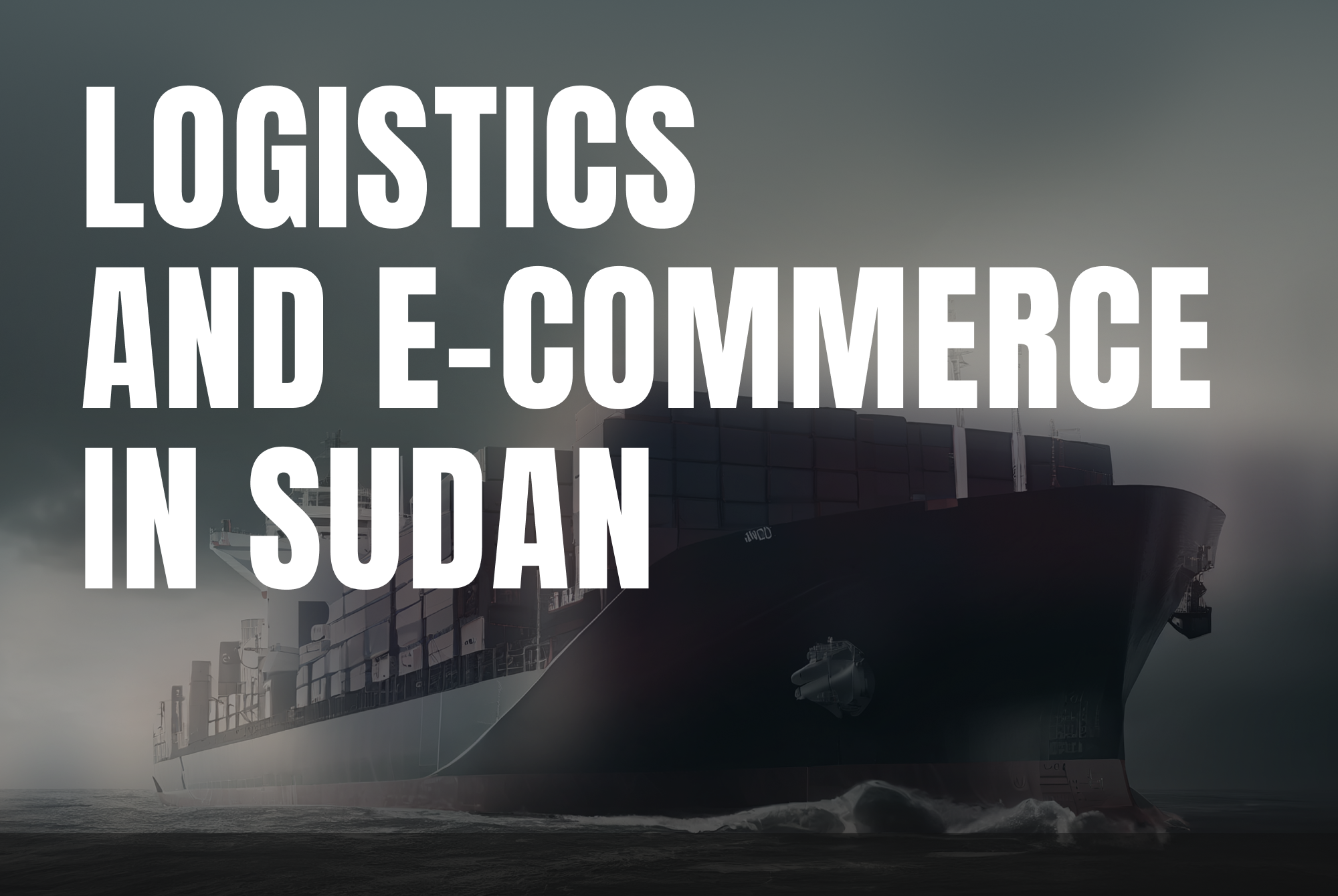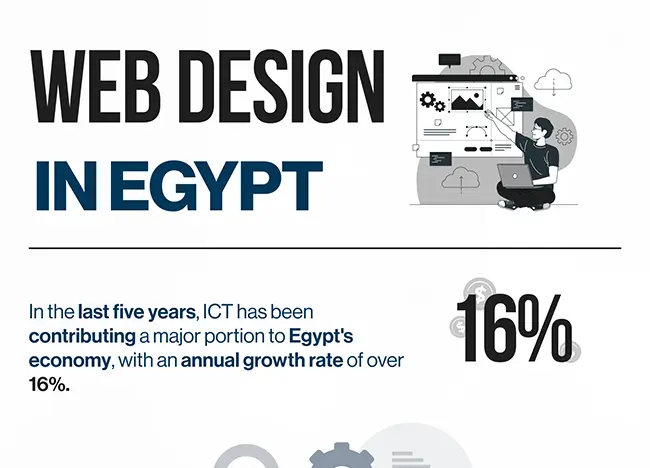The e-commerce industry has undergone a massive transformation over the past decade, with cross border e-commerce playing a significant role in global trade. Businesses are no longer confined to domestic markets, as international e-commerce trends enable brands to reach consumers worldwide. With the rapid expansion of digital commerce, cross border online shopping has become more accessible, offering shoppers a wider variety of products and competitive pricing.
According to cross border e-commerce statistics, online sales across international markets continue to surge, driven by increasing smartphone penetration, mobile commerce, and secure global payment solutions. The UAE is a key player in this evolving landscape, with its advanced digital infrastructure, high consumer spending, and strong logistics networks contributing to the region’s e-commerce growth.
In this article, we will explore the latest cross border e-commerce trends, global e-commerce sales statistics, and UAE e-commerce growth. We will also analyze key consumer behaviors, technological advancements, and logistics challenges that shape international e-commerce.
Global Cross Border E-Commerce Statistics and Trends
The cross border e-commerce industry is growing at an unprecedented rate, with retailers and marketplaces expanding their reach beyond domestic borders. Several factors contribute to this growth, including technological advancements, improved logistics, and changing consumer preferences.
The Growth of International Online Retail Sales
Global cross-border trade statistics indicate that international e-commerce transactions are increasing yearly. With more consumers willing to shop from overseas markets, cross-border B2C e-commerce sales have skyrocketed. The shift toward a mobile-first shopping experience and the availability of multiple payment gateways have further fueled this trend.
- In 2023, cross-border online shopping accounted for nearly 20% of global e-commerce sales.
- The global e-commerce market size is projected to reach $8.1 trillion by 2026, with a significant portion coming from cross-border transactions.
- Emerging markets, including the Middle East and North Africa (MENA) region, are experiencing rapid growth in international e-commerce adoption.
Key Consumer Trends in Cross-Border Shopping
Cross border e-commerce growth is fueled by several consumer-driven trends, including:
- Increased trust in international brands: Consumers are more willing to purchase from international websites, thanks to better customer service and secure payment solutions.
- Demand for high-quality and exclusive products: Many shoppers turn to cross-border platforms to access products not available in their home country.
Competitive pricing and discounts: International retailers often provide better deals than domestic competitors, making cross-border shopping a cost-effective option.
UAE E-Commerce Growth and Market Insights
The UAE e-commerce industry has witnessed significant expansion in recent years, making it a key hub for cross-border trade. With a digitally savvy population and increasing smartphone adoption, online shopping is now an integral part of the consumer experience.
UAE Online Shopping Statistics and Consumer Behavior
- The UAE boasts one of the highest internet penetration rates globally, with 99% of the population connected online.
- The country’s e-commerce market size is expected to exceed $9.2 billion by 2026, driven by a surge in mobile commerce and international retail transactions.
- According to UAE digital commerce trends, over 65% of online shoppers in the country purchase from international websites, highlighting a strong demand for cross border e-commerce.
The Role of Logistics and Payment Solutions in UAE Cross-Border Trade
One of the major factors driving UAE e-commerce growth is the country’s well-established logistics and payment infrastructure. The availability of reliable shipping options, secure payment gateways, and strong digital banking solutions makes international transactions seamless.
- Efficient cross-border shipping: The UAE serves as a strategic logistics hub, facilitating faster and more cost-effective global shipping.
- Secure payment gateways: The rise of digital wallets and secure transaction methods has encouraged more consumers to engage in cross-border online shopping.
- Government initiatives: The UAE’s policies support e-commerce expansion, with regulations that encourage foreign investments and digital trade.
Cross border e-commerce is set to play a crucial role in the UAE’s digital economy, offering businesses and consumers unparalleled access to global markets. As the region continues to embrace technological advancements, the future of international e-commerce looks promising.
Key Challenges in Cross Border E-Commerce
Despite the rapid expansion of global e-commerce sales, businesses still face several challenges in cross-border online shopping. These challenges can impact both businesses and consumers, affecting everything from logistics to payment security.
Cross-Border Logistics and Shipping Challenges
One of the biggest hurdles in cross-border trade is ensuring smooth and efficient delivery. Cross border e-commerce trends indicate that consumers expect fast, affordable, and reliable international shipping, yet logistical bottlenecks can create obstacles.
- High shipping costs: Import duties, taxes, and fluctuating exchange rates can increase overall shipping expenses.
- Longer delivery times: Unlike domestic deliveries, international shipments often take longer due to customs regulations and regional restrictions.
- Last-mile delivery inefficiencies: In some markets, last-mile delivery logistics are underdeveloped, making it difficult to ensure timely order fulfillment.
- Limited return options: Many cross border e-commerce businesses struggle with high return costs and unclear return policies, discouraging customers from making international purchases.
To overcome these challenges, businesses need to partner with reliable global shipping providers, leverage smart warehousing solutions, and optimize their supply chains. Emerging technologies such as AI-powered logistics and blockchain-based tracking systems are also helping e-commerce businesses enhance their cross-border operations.
Payment Processing and Currency Exchange Issues
Another major concern in global cross-border e-commerce is the complexity of handling multiple currencies and international payment methods. While mobile commerce and digital wallets have made transactions easier, cross-border businesses still need to address several financial challenges:
- Currency conversion fees: Many shoppers are discouraged by unexpected currency exchange fees during checkout.
- Payment fraud risks: Cross-border transactions are more vulnerable to fraud, making secure payment gateways essential.
- Limited payment options: Some consumers prefer regional payment methods that may not be supported by international merchants.
- Regulatory compliance: Businesses must comply with different tax laws, data protection policies, and financial regulations in each market they serve.
To address these challenges, businesses must integrate secure payment gateways, offer multiple payment options, and ensure compliance with international financial regulations. Leading cross border e-commerce platforms are investing in AI-driven fraud detection systems and encrypted payment processing to build consumer trust.
Future Trends in Cross Border E-Commerce
The cross border e-commerce market is constantly evolving, shaped by new technologies, shifting consumer behaviors, and innovative business models. As businesses look to expand internationally, several key trends will define the future of global e-commerce.
The Rise of Mobile-First Shopping Experiences
With the increasing adoption of smartphones worldwide, mobile commerce is set to dominate cross-border online shopping trends. Global mobile broadband penetration and the popularity of mobile wallets have made it easier for consumers to shop from international retailers.
- Mobile-friendly e-commerce platforms: Brands are investing in mobile-optimized websites and apps to enhance the user experience.
- AI-powered personalization: Machine learning and AI tools are being used to recommend products based on consumer behavior and preferences.
- One-click payments: Faster and more secure mobile payment solutions are streamlining cross-border transactions.
- Social commerce growth: Social media platforms are becoming key sales channels, with influencers driving international purchases.
Businesses that prioritize mobile-first design, implement AI-driven recommendations, and offer seamless mobile payments will gain a competitive advantage in the global market.
Blockchain and AI Transforming Global E-Commerce
Technology is revolutionizing cross-border e-commerce trends, with blockchain and AI playing a crucial role in enhancing security, logistics, and personalization.
- Blockchain for secure transactions: Blockchain technology is being used to enhance transparency in international payments and reduce fraud risks.
- AI-driven customer service: Chatbots and AI-powered assistants are improving customer interactions and helping businesses handle international inquiries more efficiently.
- Automated supply chain management: AI and big data analytics are optimizing global supply chain operations, reducing delays, and improving order fulfillment.
As businesses embrace digital transformation, those that leverage AI-powered logistics, blockchain-based payments, and mobile-friendly e-commerce platforms will be better positioned to succeed in cross-border markets.
Impact of Cross Border E-Commerce on UAE Retailers
UAE Retailers and E-Commerce
The rise of cross border e-commerce is reshaping how retailers in the UAE approach their businesses. More consumers in the UAE are turning to international online stores, looking for unique products, better deals, and a wider range of options. This shift has forced local retailers to rethink their strategies to stay competitive in a rapidly changing market. As shopping behavior evolves, UAE businesses must understand the dynamics of global online retailing to maintain their market share.
Many UAE retailers have already moved their stores online, offering e-commerce options to cater to local shoppers. However, the growth of cross-border shopping means they must adapt even further. UAE businesses are not just competing with local competitors; they are now up against international brands with strong online presences. Local retailers must learn to offer products that consumers can’t easily find overseas or focus on providing better customer service, faster delivery times, or more convenient return policies.
Local Businesses Adapting to Cross-Border Shopping
As cross-border shopping continues to grow in popularity, local businesses in the UAE are finding new ways to compete with international sellers. Many are embracing global marketplaces, such as Amazon and eBay, to reach a broader audience and sell internationally. However, this presents its own set of challenges. Businesses must adjust their pricing, shipping strategies, and marketing efforts to appeal to customers who are now accustomed to shopping beyond their borders.
Some UAE retailers are choosing to partner with international suppliers, offering a curated selection of products that appeal to local tastes while keeping costs competitive. For example, retailers may look to Asian or European markets for high-quality, affordable products that can’t be found in the UAE. This helps them keep up with the global market while also offering something unique to their customers.
Others are focusing on improving their local operations by streamlining their logistics and shipping processes. Faster delivery times and flexible payment methods are key to winning over customers who might otherwise shop with international stores. Some UAE retailers are also offering free or discounted shipping to create a competitive edge and improve their chances of capturing more market share.
E-Commerce Competition in UAE
The growing competition from cross-border e-commerce is pushing UAE retailers to rethink their online strategies. With so many options available to consumers, standing out in a crowded market is more important than ever. E-commerce competition is no longer just about price; it’s also about delivering a smooth and efficient shopping experience. Retailers need to invest in website optimization, customer support, and digital marketing to remain competitive.
Businesses that are able to offer personalized experiences to their customers have a clear advantage. Whether through personalized product recommendations, targeted promotions, or tailored content, creating a shopping experience that speaks to the individual is key. UAE retailers must also invest in SEO and digital marketing campaigns to ensure they appear in front of the right customers, at the right time.
Local businesses are also using social media platforms to build relationships with customers and enhance brand loyalty. By creating engaging content and offering special promotions, UAE retailers are finding new ways to connect with their target audiences.
How to Overcome Barriers in Cross-Border E-Commerce: A Guide for UAE Shoppers
Shopping online from international stores can be exciting, but it also comes with its challenges. In the UAE, where online shopping is booming, overcoming these barriers can make a world of difference in your e-commerce experience. Here's a breakdown of common challenges and how to tackle them:
Overcoming Barriers to Cross-Border Shopping
Cross-border shopping can be a convenient way to access global products, but not without its obstacles. High shipping fees, longer delivery times, and unclear return policies often discourage shoppers from making purchases. However, addressing these issues starts with finding trustworthy platforms that offer transparent pricing and reliable shipping options. Services like GO-Globe can help local businesses set up e-commerce strategies that mitigate these challenges, ensuring a smooth shopping experience for UAE residents.
Challenges in International Shopping
When shopping internationally, issues such as currency conversion, import taxes, and different return policies can make the process complicated. Additionally, many UAE shoppers face the challenge of understanding how the product will be delivered and what additional fees might be involved. These barriers can sometimes turn a simple purchase into a frustrating experience. Being aware of the laws and using reliable platforms can help minimize confusion and increase confidence in international transactions.
Solutions to Shipping Costs in Cross-Border E-Commerce
Shipping costs can be one of the biggest hurdles in cross-border shopping. To manage these costs, shoppers should look for online retailers who offer flat-rate international shipping or free delivery on orders over a certain amount. Some services also allow UAE residents to use local addresses in countries like the UK or the US, helping them avoid excessive shipping fees. With strategic planning, the cost of delivery can be reduced significantly, making cross-border shopping much more affordable.
Reducing Delivery Time in E-Commerce
Delivery time is often a concern in cross-border e-commerce. Waiting weeks for a product can be frustrating, especially when the competition for fast shipping is increasing globally. One solution is choosing e-commerce sites that have partnerships with reliable shipping companies. Another option is selecting businesses that offer express delivery services. By selecting the right platforms and services, such as those integrated with GO-Globe's tailored marketing strategies, UAE shoppers can ensure quicker deliveries.
Top Cross-Border E-Commerce Markets for UAE Shoppers
In recent years, UAE shoppers have been increasingly exploring online shopping beyond local borders. With a growing preference for international goods, countries like the US, China, and various European nations have become top shopping destinations for UAE residents.
United States: The US remains a favorite for many UAE shoppers. The wide variety of high-quality products available across various categories, such as electronics, fashion, and beauty, make it a go-to option. The US e-commerce market is known for offering exclusive items that are often not found in local stores. Moreover, shipping services and deals have become more accessible, making it easier for UAE residents to shop from US-based websites.
China: China is another dominant player in cross border e-commerce, with platforms like AliExpress and Taobao offering a vast range of affordable goods. Electronics, gadgets, and clothing are some of the most purchased items by UAE consumers. Due to lower costs, Chinese products are seen as budget-friendly alternatives without compromising on quality.
Europe: European countries, especially the UK, Germany, and France, are also significant markets for UAE shoppers. Luxury goods, fashion, and unique European designs are in high demand. The trust in the quality of European products, coupled with reliable shipping services, makes shopping from Europe a popular choice for UAE residents. Moreover, international sales and promotions further increase the appeal of European e-commerce websites.
Challenges Faced by Cross Border E-Commerce Shoppers in the UAE
Shopping internationally can be an exciting experience, but it doesn’t come without its challenges, especially for consumers in the UAE. As a hub for diverse cultures and a booming market for cross border e-commerce, UAE shoppers encounter several obstacles when buying from global stores.
Language Barriers: One of the primary hurdles is the language difference. Many international websites do not offer Arabic as a language option, which can make navigating the site and understanding product details difficult for shoppers. Even when a website is translated, there might be issues with accuracy, leaving customers unsure about product specifications, return policies, or shipping terms.
Currency Differences: Currency differences are another significant challenge. While most global stores accept credit cards, exchange rates and conversion fees can lead to unexpected costs. Shoppers often find themselves paying more than anticipated due to fluctuating exchange rates. This can make budgeting difficult for those who are not familiar with international currencies.
Customs Issues: Customs regulations are another concern. The UAE has specific import rules that may delay shipments or lead to extra charges. Some items might even be banned, requiring shoppers to stay informed about what they can and cannot purchase internationally. These customs issues can cause frustration, especially if the delivery is delayed or additional fees are applied.
These challenges make cross border e-commerce less straightforward, but companies like GO-Globe can help businesses navigate these barriers with digital marketing strategies tailored to local consumers. By understanding these difficulties, brands can improve the shopping experience for UAE customers, ensuring they are better prepared for a smoother transaction process.
Regulations and Laws Affecting Cross Border E-Commerce in the UAE
When it comes to cross border e-commerce in the UAE, understanding the regulations and laws is crucial for both businesses and consumers. These rules determine how goods are imported, taxed, and sold, impacting both the cost and the process of international shopping.
Customs Duties and Taxes: One of the most important aspects of cross border e-commerce in the UAE is the customs duty system. When consumers purchase goods from international websites, they are subject to customs duties and VAT (Value Added Tax). Currently, the standard VAT rate in the UAE is 5%, which applies to most goods and services. Customs duties vary depending on the product category and its value. For example, luxury items or electronics may face higher duties, while others may be exempt or subject to lower rates.
Import and Export Regulations: The UAE has strict regulations on the import and export of certain goods, especially in categories like pharmaceuticals, food, and electronics. Businesses must ensure that they comply with these rules, as failing to do so can lead to delays or fines. The UAE Federal Customs Authority (FCA) enforces these regulations, and all goods entering the country must be properly documented to pass inspection.
Consumer Protection Laws: Consumers in the UAE also enjoy strong protection under the law. The government has introduced several measures to safeguard against fraud and ensure product quality. For example, any product purchased through cross border e-commerce must meet the UAE's safety standards, and sellers are required to offer clear return policies.
How Cross Border E-Commerce is Shaping the UAE Economy
The rise of cross border e-commerce is significantly influencing the UAE's economy, creating new opportunities and challenges for local businesses. With the UAE's strategic location as a global trade hub, the growth of online shopping has driven economic diversification, opening the door for businesses to reach international markets. This trend has proven beneficial not only for large corporations but also for small and medium-sized enterprises (SMEs), allowing them to scale up quickly by tapping into global demand.
Job creation is another crucial aspect of this transformation. The increase in e-commerce activities has spurred demand for roles in logistics, digital marketing, customer support, and IT development. As local businesses expand their online presence to cater to international shoppers, they require skilled professionals to manage their online platforms, handle cross-border transactions, and ensure smooth delivery systems. This shift is helping to nurture a more diverse and skilled workforce in the UAE.
FAQs
1. What is cross border e-commerce, and why is it growing?
Cross border e-commerce refers to online trade between businesses and consumers in different countries. It is growing due to the rise of global mobile access, improved internet traffic infrastructure, and increasing consumer trust in international online shopping.
2. What are the biggest challenges in cross border e-commerce?
Some key challenges include customs regulations, taxation policies, payment security, logistics and shipping costs, and language barriers. Businesses need to implement localization strategies and work with cross-border logistics providers to ensure smooth operations.
3. What percentage of global internet traffic comes from mobile users?
According to global internet usage statistics, more than half of internet traffic worldwide now comes from mobile devices. This makes mobile-friendly e-commerce platforms essential for businesses looking to expand internationally.
4. How can businesses optimize their e-commerce sites for cross-border customers?
Businesses should focus on localized SEO, multilingual customer support, regional payment methods, and mobile-optimized websites. Implementing AI-driven personalized recommendations and investing in fast international shipping can also improve customer experience.
5. What are the best payment options for cross-border e-commerce?
Popular cross-border payment solutions include PayPal, Alipay, WeChat Pay, credit/debit cards, digital wallets, and cryptocurrency transactions. Offering multiple payment options helps increase conversion rates and reduce cart abandonment.
6. How do global regulations affect cross border e-commerce?
Governments worldwide are implementing regulations such as the GDPR (General Data Protection Regulation) in Europe and the CCPA (California Consumer Privacy Act (CCPA) to protect consumer data. Businesses must comply with these laws to avoid legal risks and build consumer trust.
7. What industries benefit the most from cross border e-commerce?
Sectors such as fashion, electronics, beauty, and consumer goods are leading in global e-commerce markets. However, industries like healthcare, automotive, and B2B trade are also seeing significant growth in international online sales.
8. How is mobile commerce shaping the future of cross border e-commerce?
With increasing global mobile data traffic, mobile commerce (m-commerce) is driving international e-commerce growth. Businesses must optimize their platforms for mobile internet usage, integrate AI chatbots, and offer seamless mobile payment solutions to remain competitive.
























